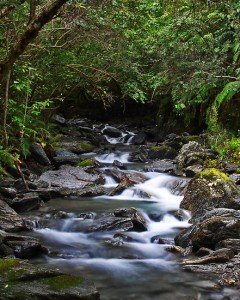The government’s latest plans for freshwater quality and irrigation have made some progress towards a more environmental national policy on our water quality, but are further steps necessary?
 The Sunday Star Times columnist, Rod Oram, has provided his opinion on what is really needed to make the freshwater National Policy Statement work.
The Sunday Star Times columnist, Rod Oram, has provided his opinion on what is really needed to make the freshwater National Policy Statement work.
An excerpt (read the article in full here)
Extra mile needed on water
THE GOVERNMENT announced a few good policy decisions on water this past week. But it needs courage to make some harder ones if we are to stand a chance of using this precious resource sustainably.
The timeframes are long. It will take a couple more years to get policy right and a further 15 years or so to get the full economic benefits government is promising from a massive increase in irrigation. Then it will take decades more before we know whether we’re finally using water wisely.
This past week’s decisions are welcome after years of failure by previous governments to grapple with the huge complexities of water. Labour was particularly ineffectual at reconciling intensely competing agricultural, power generation, recreational and urban users. National made real progress, though, because it made a brave decision two years ago. It tasked the Land and Water Forum to bring together 58 organisations to find common ground to build policy on.
Over some 15 months of meetings, a remarkable thing happened. Users developed some understanding of each other’s positions. As a result, they made 53 recommendations to government last September on water quality, standards, allocation, pricing and use. Their report challenged government to buy in to collaborative policymaking, a system the Scandinavians use well for building social consensus on complex issues; or default back to dysfunctional politicking.
After waiting eight months for a verdict, we got a partial but encouraging one last week. The government said it would issue a national policy statement (NPS) to give the 16 regional councils stronger guidance on how they manage fresh water under the RMA.
But the government has substantially weakened the draft NPS very carefully constructed by a board of inquiry. The forum had backed it, recommending only a few changes.
The government’s version, for example, eschews national water standards as impractical. Maintaining high standards on fast flowing West Coast rivers is easier than on rivers flowing slowly though the intensively farmed Waikato. So each region will work out its own water quality standards and strategies, resulting in 16 fierce fights. Of course each region should have flexibility of timeframes and processes to deal with its local challenges. But all should have the same objective. It could be a simple national standard: all waterways are safe to swim and fish in.